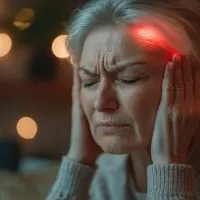Menopause and perimenopause can significantly impact sleep due to hormonal fluctuations, particularly the decline in oestrogen and progesterone. These hormonal changes can affect the body’s ability to regulate sleep patterns, leading to a variety of sleep disturbances. Oestrogen influences the production of serotonin and melatonin, two hormones that regulate sleep-wake cycles, while progesterone has a calming effect that helps with falling and staying asleep. As these hormone levels decrease, many women experience difficulty falling asleep, staying asleep, or achieving restful sleep.
Sleep
Managing sleep changes during menopause may involve managing stress, creating a relaxing bedtime routine, and addressing symptoms like hot flashes or night sweats.
















